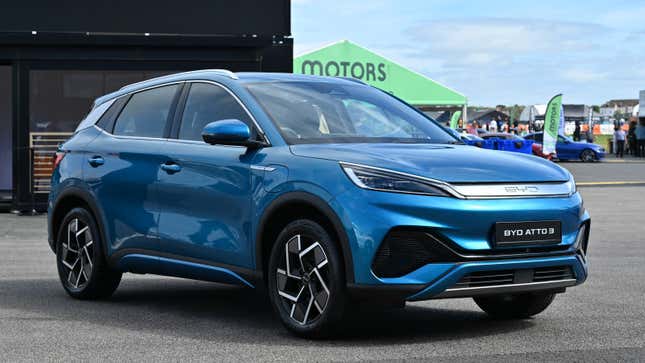For years, Apple was rumored to be engaged on a futuristic self-driving automobile, with the corporate tied to collaborations with Volkswagen and even a possible deal to purchase McLaren at one level. That by no means occurred and the undertaking was canned after ten years, however now it seems a few of the tech developed by Apple’s automobile program has discovered its means into vehicles constructed by one other automaker.
The American tech large wasn’t in cahoots with VW or McLaren, it wasn’t even working with its provider Foxconn on its growing endeavors into the automotive world. No, Apple was as a substitute working with Chinese language EV maker BYD, experiences Bloomberg.
The iPhone maker reportedly labored with Chinese language automaker BYD “for years,” explains Bllomberg. The 2 firms co-developed long-range batteries that fashioned the premise for the type of cells BYD makes use of in its fashions as we speak:
Apple and the Shenzhen-based firm teamed up round 2017 to construct a battery system utilizing lithium iron phosphate cells, mentioned the individuals, who requested to not be recognized as a result of the hassle hasn’t been disclosed. The expertise was designed to be longer-range and safer than typical electric-vehicle batteries on the time.
Although Apple doesn’t personal any of the expertise utilized in BYD’s present Blade batteries, the partnership reveals simply how far the iPhone maker went in its efforts to provide a automobile. The tech titan spent roughly $1 billion a 12 months over the previous decade on the automobile undertaking — typically seen as one of many firm’s “subsequent large issues” — earlier than scrapping it in February.
The expertise that Apple developed with BYD would have been extremely personalized for the once-planned automobile, based on the individuals. As a part of the key partnership, Apple engineers introduced experience in superior battery packs and warmth administration, they mentioned. BYD contributed manufacturing know-how and developments utilizing lithium iron phosphate cells — higher often known as LFP.
BYD now makes use of the Blade battery tech throughout its whole lineup of electrical vehicles, with a spokesperson for the corporate telling Bloomberg that it “holds full property rights and patent rights for the Blade battery.”

The tech is about aside in the best way it arranges the lithium iron phosphate cells that BYD makes use of in its vehicles, explains Autoevolution. This was Apple’s contribution to the undertaking, the location experiences, because it follows the same technique to how the tech large stacks cells in merchandise like its laptops:
On the time, Apple was engaged on a number of totally different battery applied sciences, utilizing components like nickel and alkaline. It had additionally invested thousands and thousands of {dollars} into battery pack design and engineering that may permit area optimization for improved vitality density. By combining BYD’s LFP tech with Apple pack design, the Cupertino firm believed it may produce a protected, long-range battery system for its automobile undertaking.
Apple reportedly backed away from the collaboration with BYD and seemed throughout the auto business for one other battery accomplice to work with. The search was short-lived, nevertheless, and the tech large canned its quest to construct a automobile of its personal earlier this 12 months after ten years of labor on the undertaking.


